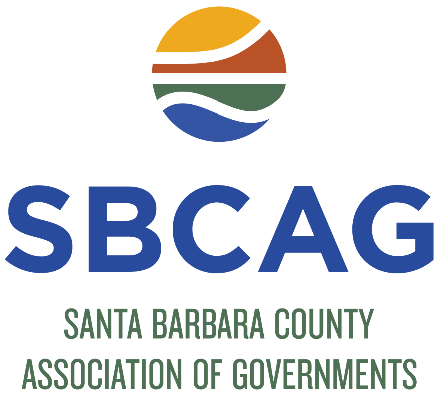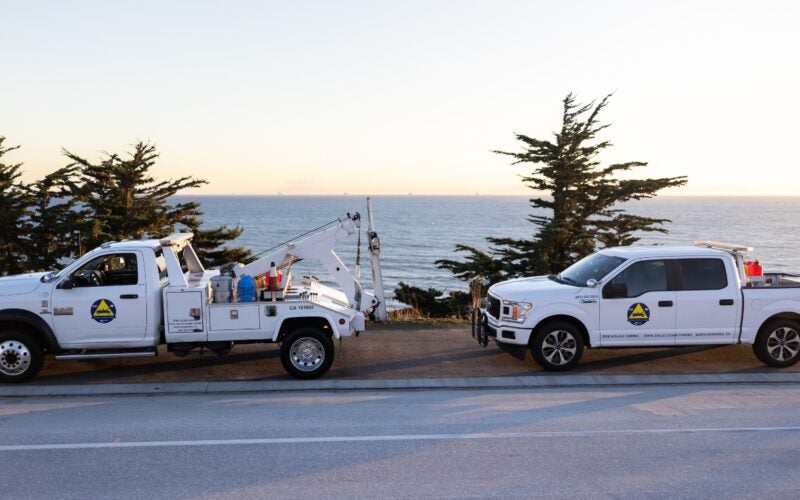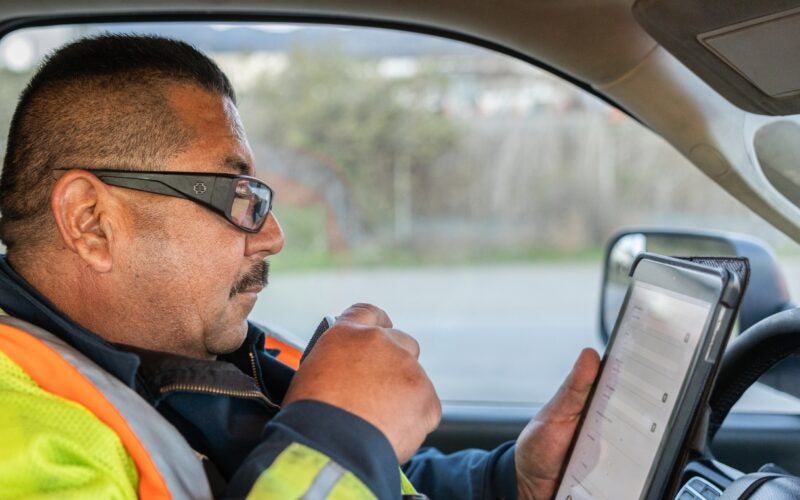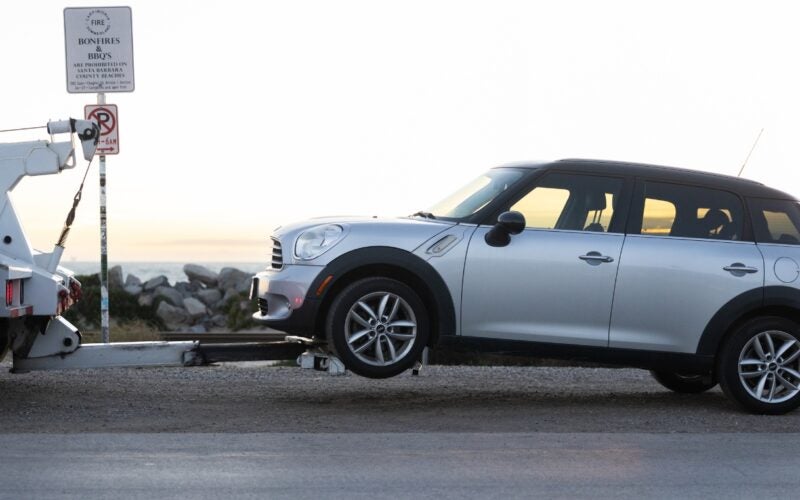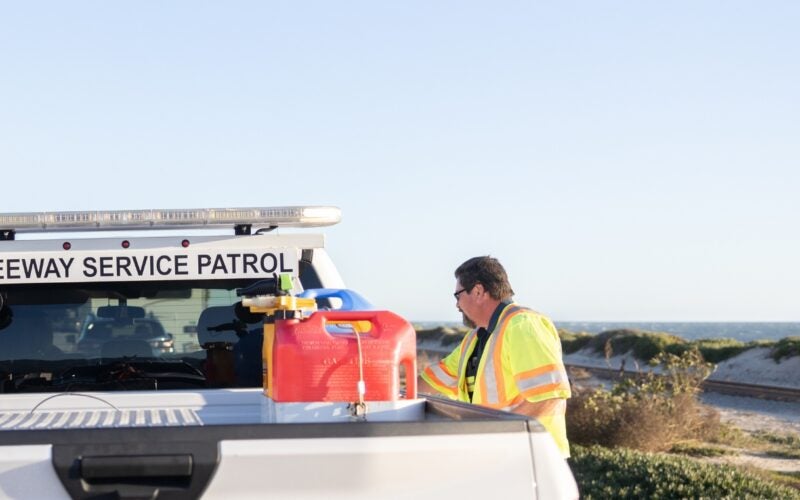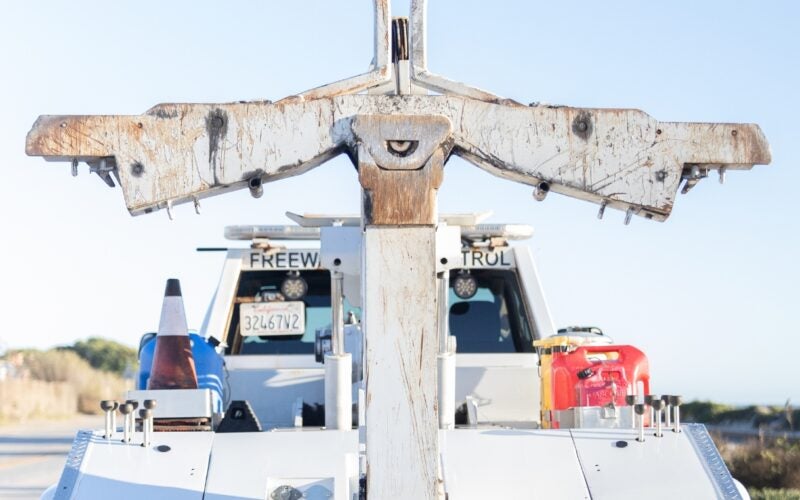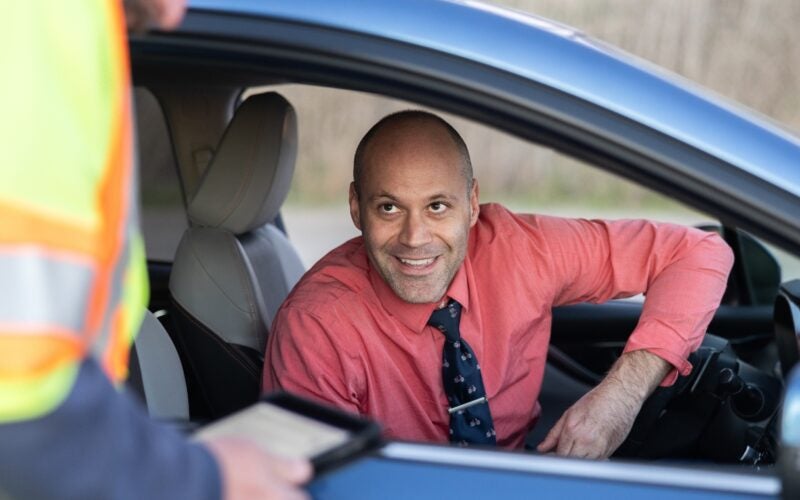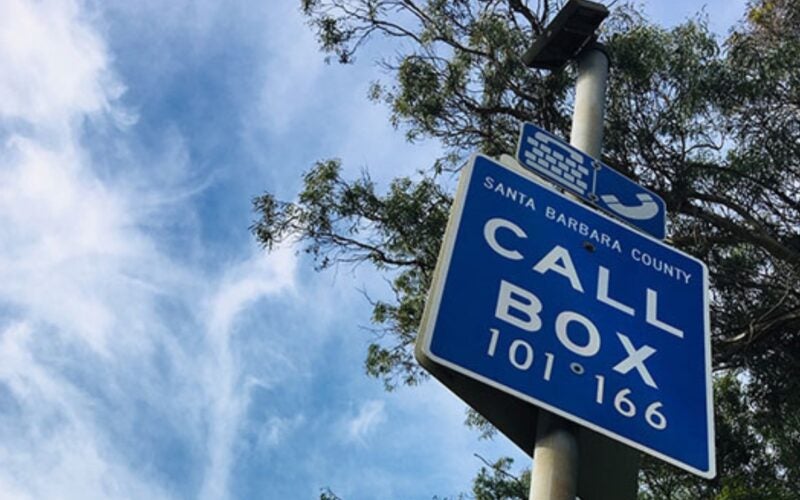Motorist Aid in Santa Barbara County

SBCAG manages congestion mitigation funds designed to provide benefits to the motoring public by reducing hours of congestion delay, improving air quality, and enhancing freeway safety.
Call Boxes
SBCAG serves as the Service Authority for Freeway Emergencies (SAFE) for Santa Barbara County and is responsible for the installation, operation, and administration of approximately 50 highway call boxes.
In response to motorist needing emergency assistance, the California legislature established SAFE to place highly visible roadside call boxes along the California Freeway and Expressway System so that stranded motorists can access help when it is needed the most. Call boxes have instant access to a 24-7 call center to assist with a variety of roadside emergencies. The call center can help with calling a tow truck, the California Highway Patrol, or a family member or friend.
In Santa Barbara County, the call box system is financed entirely by a $1 per year fee on all motor vehicles registered within the county. The money received by Santa Barbara County SAFE must be used to implement, maintain, and operate the motorist aid system of call boxes. Any money received that exceeds costs may be used for additional motorist aid services or support such as providing the local match for the Freeway Service Patrol Program and the Transportation Demand Management programs in the county.
Freeway Service Patrol
The Freeway Service Patrol (FSP) program is a free service provided by the Santa Barbara County Association of Governments (SBCAG), the California Highway Patrol (CHP) and Caltrans. FSP is composed of a fleet of tow and service trucks that patrol designated routes of Highway 101 on the south coast corridor. The service is provided Monday through Friday during peak commute hours.
The Santa Barbara FSP is a public service comprised of a fleet of tow and service trucks that patrol designated portions (beats) of Highway 101 between Bates Road and Los Positas Road. The service is currently provided Monday through Friday during peak commute hours: 6:30 a.m. to 9:30 a.m. and 3:30 p.m. to 6:30 p.m. The FSP program provides congestion relief, safety and air quality benefits by:
- Reducing traffic jams through prompt removal of stalled cars
- Reducing the chance of further accidents and bottlenecks
- Saving fuel and cutting air polluting emissions by reducing stop-and-go traffic
- Keeping narrowed lanes clear during construction projects
The Freeway Service Patrol is provided under contract with local towing company, Bob Holzer Towing, and administered by SBCAG. During hours of FSP operation there is one tow truck and one service vehicle on-duty to assist motorists as they are discovered or as dispatched by the CHP. Services provided by the FSP include:
- Changing flats
- Jump starting
- Refilling radiators
- Taping leaky hoses
- Adding a gallon of fuel
- Towing inoperable vehicles, free of charge, to a safe location
- Clearing vehicles damaged in collisions under CHP direction
- Removing debris from traffic lanes under CHP direction
Where and when do the FSP tow trucks operate?
FSP vehicles are in the field during the weekday peak commute period on Highway 101 between Bates Road and Los Positas Road. The service is currently provided Monday through Friday during peak commute hours: 6:30 a.m. to 9:30 a.m. and 3:30 p.m. to 6:30 p.m.
Is there any cost to the motorist for the FSP service?
All FSP services are free.
How is the FSP funded?
Funding for FSP comes from two sources. The State of California provides funding for 75% percent of FSP program costs with the remaining 25% funded from a local match. SBCAG’s local matching funds come from a $1.00 annual fee charged to motorists who register a vehicle in Santa Barbara County. Fees are deposited in SBCAG’s Service Authority for Freeway Emergencies (SAFE) account which are expended on motorist aid purposes per State law.
How can I recognize the Freeway Service Patrol?
All of the Freeway Service Patrol vehicles are white and have the FSP log on the doors. Drivers wear yellow safety vests with the same logo on them.
Can I pay or tip the driver?
No. Drivers are prohibited from accepting tips. However, you may write a letter of thanks with the driver’s name to:
Santa Barbara Freeway Service Patrol
260 N. San Antonio Road, Suite B
Santa Barbara, CA 93110
How does the Freeway Service Patrol help congestion?
The FSP program reduces freeway congestion by quickly clearing stalled vehicles and other obstructions. For each minute a stalled vehicle is in a lane, it takes four minutes for traffic to return to the original flow condition.
How does the FSP Program improve air quality?
By removing traffic obstructions quickly, the FSP program reduces the amount of time a vehicle idles in traffic producing exhaust. In turn, this reduces the number of pollutants being put in the air.
Why can’t I get towed to a mechanic or garage?
FSP drivers are only authorized to assist in getting disabled vehicles operating again or towing disabled vehicles to designated drop areas off of the Highway 101 freeway. The FSP tow truck drivers are not authorized to tow vehicles to any other locations. Drivers of disabled vehicles must make their own arrangements to have their vehicle towed from the drop area to a repair garage or other location.
Why can’t I get towed home or to work?
The primary purpose of the FSP is to get motorists and vehicles out of harm’s way. Tow operators need to resume service on the freeway as quickly as possible in order to continue assisting other stranded motorists.
Who receives Call Box calls in Santa Barbara?
AAMCOM receives voice and TTY calls and agents follow a script to offer eligible assistance before dispatching CHP.
Are Call Box calls recorded?
AAMCOM records all calls. SBCAG can listen to these recordings for quality assurance.
Who can I reach with an emergency Call Box?
AAMCOM will connect you with member tow service (e.g.: AAA), family member for a ride, or paid tow service.
What happens if I cannot afford a tow service?
AAMCOM will dispatch CHP to your location for assistance. Your vehicle may be towed.
